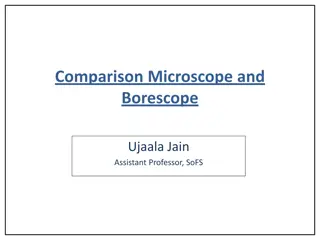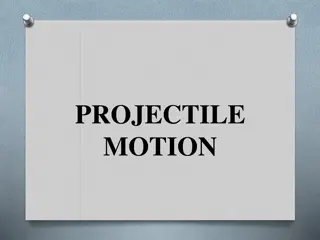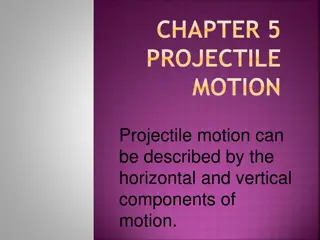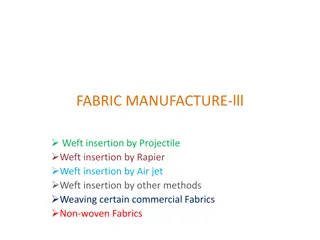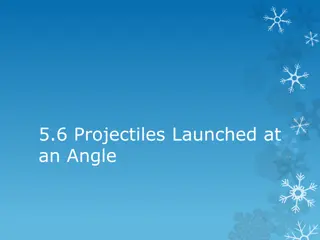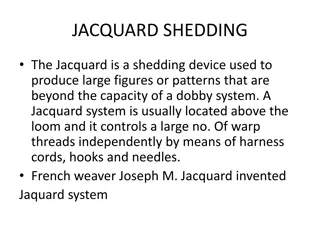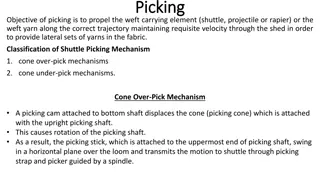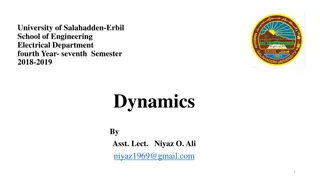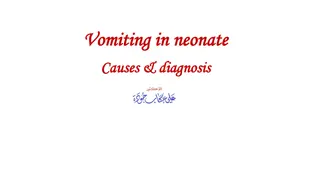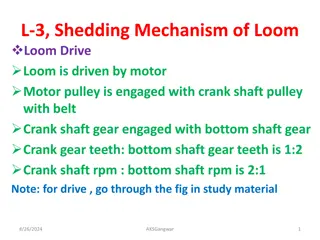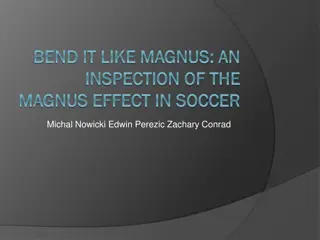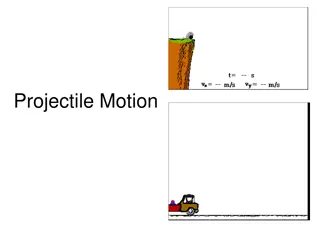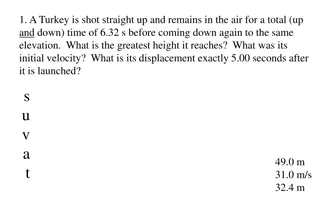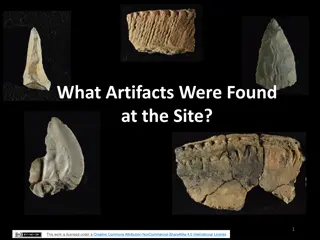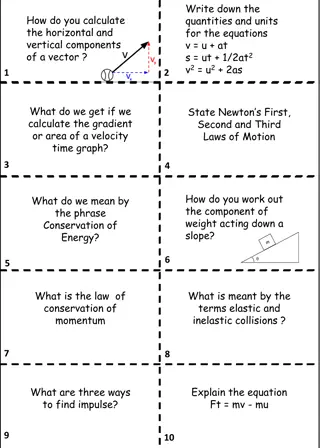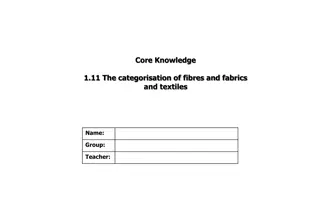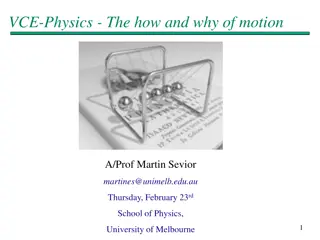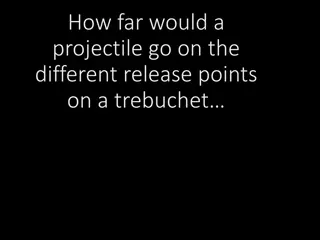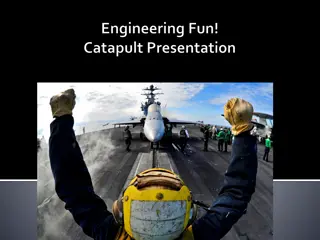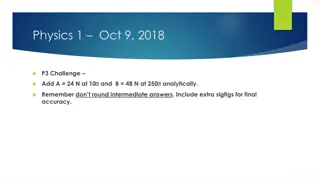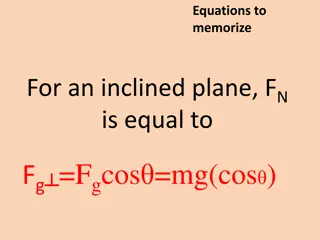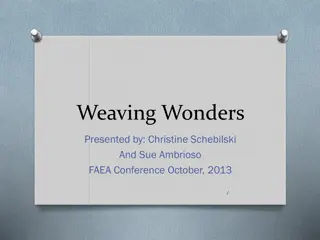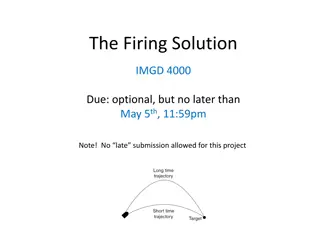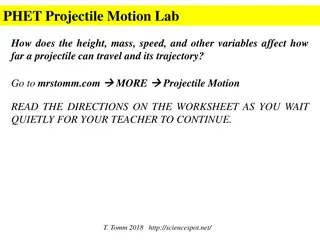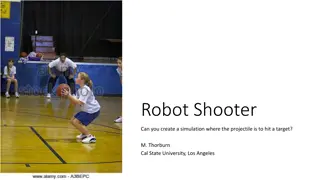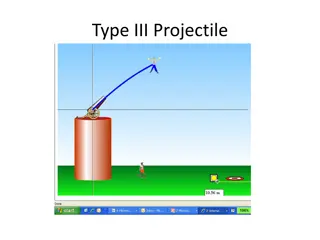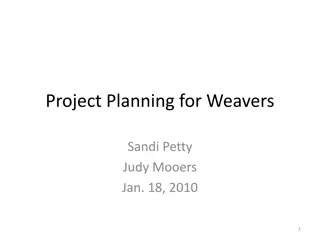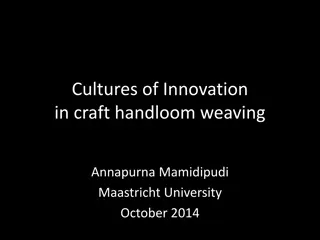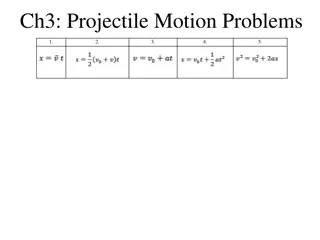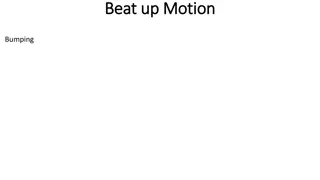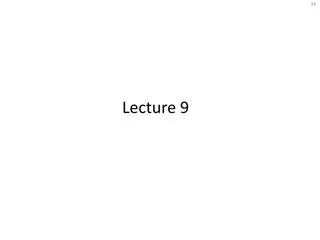Physics Quiz Questions with Solutions
Explore a selection of physics quiz questions from a 2012 exam, covering topics such as centripetal acceleration, friction, work done by forces, gravitational potential energy, projectile motion, and momentum changes. Test your understanding and knowledge of fundamental physics principles with detai
3 views • 8 slides
Forensic Analysis Instruments: Microscope vs. Borescope
Instruments like the stereomicroscope, comparison microscope, and borescope are used in forensic analysis for individual examination, side-by-side comparison, superimposition, and barrel analysis. The comparison microscope is utilized for analyzing fired cartridge cases, while the borescope helps in
0 views • 8 slides
Comparison Microscope and Borescope
Instruments like Stereomicroscope, Comparison Microscope, and Borescope are used for individual examination, side-by-side comparison, superimposition, and analysis of barrels in forensic investigations. Comparison microscopes are used for examining fired cartridge cases but have limitations such as
1 views • 8 slides
Understanding Projectile Motion: Characteristics, Examples, and Formulas
Projectile motion involves the motion of objects under the influence of gravity, with both vertical and horizontal components. This type of motion is seen in activities such as throwing a ball, kicking a football, or dropping objects. The motion is described by specific formulas, including calculati
1 views • 19 slides
Understanding Projectile Motion: Components and Trajectories
Projectile motion involves the horizontal and vertical components of motion, where objects follow parabolic trajectories under the influence of gravity. The horizontal and vertical motions are independent of each other, leading to a variety of curved paths. This phenomenon is illustrated through exa
1 views • 13 slides
Understanding Projectile Weaving Machines in Fabric Manufacture
Projectile weaving machines revolutionized fabric manufacturing with their unique weft insertion system. Introduced by Sulzer Brothers in 1953, these machines feature separate units for picking and projectile receiving, utilizing a gripper projectile to carry the weft thread without the need for win
0 views • 13 slides
Understanding Projectile Motion: An In-depth Analysis
Explore the principles of projectile motion through images illustrating the effects of gravity on launched objects. Learn about the vertical and horizontal components, velocity changes, range, and how different launch angles impact the trajectory and distance traveled by projectiles.
0 views • 19 slides
Wind Reading Essentials for Improved Accuracy in Shooting
Enhance your shooting skills by mastering wind reading basics such as wind speed, wind direction, flag patterns, and their effects on projectiles. Understand how to interpret wind conditions to make accurate shots and improve your scoring. Explore the key factors influencing the flight path of a pro
0 views • 10 slides
Understanding Jacquard Shedding in Weaving Technology
Jacquard shedding in weaving involves a system that controls a large number of warp threads independently, allowing for intricate and detailed patterns that go beyond what a dobby system can achieve. Different types of Jacquard shedding systems exist, each with specific characteristics and working p
1 views • 8 slides
Understanding Shuttle Picking Mechanisms in Weaving
Shuttle picking mechanisms play a crucial role in propelling the weft carrying element to maintain the required trajectory and velocity in fabric weaving. Two common mechanisms are cone over-pick and cone under-pick, each offering unique adjustments for strength and timing. The cone over-pick involv
0 views • 14 slides
Engineering Dynamics Principles and Problem Solving
Understanding the laws of motion and their application in dynamics is crucial in engineering. This content explains the concepts of force, acceleration, and inertia through practical examples such as projectile motion and frictional forces on a baggage truck. It also demonstrates how to calculate ma
0 views • 10 slides
Neonatal Vomiting: Causes, Diagnosis, and Differential Diagnosis
Neonatal vomiting can be a concern when presenting with bile-stained or blood-stained vomit, projectile vomiting, or associated with weight loss and failure to grow. Various non-surgical and surgical conditions like Pyloric Stenosis can lead to vomiting in neonates. Common causes include Mid-gut vol
0 views • 16 slides
Understanding Shedding Mechanism in Loom Drive and Types of Sheds
Shedding in the weaving process involves the division of a single layer of warp sheet into two layers using heald shafts. The loom drive is powered by a motor, and the shedding mechanism includes tappet, dobby, and Jacquard systems. Different types of sheds include open sheds, semi-open sheds, and c
0 views • 27 slides
Understanding the Magnus Effect in Soccer: A Comprehensive Analysis
Explore the Magnus Effect in soccer through a detailed examination of its physical examples, the physics behind it, mathematics of movement, and numerical methods for solution. Delve into real-world applications, such as Roberto Carlos' famous 1997 goal, to understand the impact of fluid dynamics an
1 views • 12 slides
Understanding Projectile Motion in Physics
A projectile, acted upon by gravity, follows a parabolic path in projectile motion. By choosing appropriate coordinates and strategies, analyzing motion along vertical and horizontal axes becomes manageable. Key formulas and strategies help in determining components of velocity, maximum height, time
5 views • 25 slides
Advanced Projectile System in Unreal Engine 4
Learn about creating advanced projectiles in Unreal Engine 4 using key elements such as Actor Class, Collision Volume, Particle System, and Projectile Movement Component. Explore the use of Line Tracing and Hit Result Structure for more complex projectile interactions and effects. Understand the imp
2 views • 17 slides
Physics Problems on Projectile Motion
Projectile motion problems involving various objects such as turkeys, pot pies, lemons, rockets, nuggets, gourds, and watermelons being launched or thrown vertically up or down, each with unique initial velocities and times in the air. The problems require calculating maximum heights, initial veloci
1 views • 10 slides
Discoveries at M-231 Site: Artifacts and Findings
Features like cache pits and roasting pits, along with various artifacts, were unearthed at the M-231 site. Archaeologists identified items such as a knife, projectile points, and spear points. The collection of artifacts raises questions about their use across different time periods.
0 views • 51 slides
Physics Concepts and Laws Explained
Quantities and units in physics equations, calculation of vector components, laws of motion, conservation of energy, conservation of momentum, impulse, elastic and inelastic collisions, gravitational potential energy, projectile motion, satellite motion, special relativity postulates, time dilation
0 views • 10 slides
Preserving Masalili Textile Weaving: Nusantara's Cultural Heritage Amidst Challenges
Amid the challenges brought by the Covid-19 pandemic, the traditional cloth weavers of Masalili Village in Indonesia are striving to preserve their regional identity and national heritage through textile weaving. This article explores how the youth are involved in safeguarding this cultural masterpi
0 views • 11 slides
Exploring Fibres and Fabrics: Natural vs. Synthetic, Weaving Techniques, and Non-Woven Textiles
Dive into the world of textiles with a focus on natural and synthetic fibres, weaving methods such as plain and twill weave, and non-woven textiles like felted wool. Discover the properties, characteristics, uses, advantages, and disadvantages of each type, including insights into animal and plant-b
0 views • 9 slides
Neutralization of Proton Beam Through Charge Exchange Cell
Collisions between neutral particle beams and target materials at varying projectile energies play a crucial role in numerous applications. Charge exchange cells facilitate the generation of high-velocity neutral particles by neutralizing fast ions within a high-density gas region. By capturing elec
0 views • 15 slides
Understanding Kinematics in Physics: The How and Why of Motion
Explore the fascinating world of kinematics in physics through the concept of motion, acceleration, and free-fall. From constant acceleration to projectile motion, unravel the principles behind bodies in motion. Delve into the discoveries of scientists like Galileo and experience free-fall demonstra
0 views • 21 slides
Maximizing Projectile Distance with Trebuchet Release Points
Experiment conducted to determine the optimum release point on a trebuchet arm for maximum projectile distance. Hypothesis stated that the projectile would travel farthest when released at the longest point. Limited prior research on trebuchet arm length and its impact on distance. Materials used in
0 views • 15 slides
Design Goals and Catapult Launch Angle for Optimal Performance
When designing a catapult, key goals include accuracy, power, durability, and safety. To launch an object the farthest, an optimal launch angle needs to be calculated based on projectile motion physics. For practical application, a hands-on project like building a catapult using popsicle sticks, str
0 views • 4 slides
Understanding 2D Kinematics and Projectile Motion in Physics
Explore the principles of 2D motion in physics, including vector quantities, kinematic equations, and problem-solving techniques. Dive into projectile motion, understanding its components and variables, and how to analyze trajectories. Enhance your knowledge through practical examples and challenges
0 views • 11 slides
Essential Physics Equations to Memorize
Important physics equations to remember for various scenarios such as inclined planes, projectile motion, circles, centripetal force, and momentum. Includes equations for forces, velocities, areas of shapes, time calculations, and more.
0 views • 128 slides
Scientific Investigation on Projectile Motion
Explore the concepts of hypothesis, variables, and controlled factors in scientific experiments through the investigations carried out by Sandile and Bongiwe. Sandile examines how adding sugar affects the volume of coffee, while Bongiwe investigates the impact of pellet distance on speed in a ballis
0 views • 17 slides
Weaving Wonders: Textile Art Exploration for Students
Dive into the world of weaving with "Weaving Wonders" presented by Christine Schebilski and Sue Ambrioso at the FAEA Conference. Students will learn the art of weaving, understand the significance of textiles in their lives, and explore various artistic processes. From understanding weaving terminol
0 views • 13 slides
Cannon Ball Projectile Range and Trajectory Analysis
Analysis of a cannon ball fired through two points to determine its range, angle of projection, and initial velocity. The trajectory is modeled as a parabola with calculations based on the given data points. Energy considerations are used to determine the velocity at the top of the flight. The angle
0 views • 29 slides
Kinematics-Based Cannon Projectile Simulation Project
Practice coding kinematics-based behavior using vectors in UE4 to create a simulation where a cannon automatically adjusts its angle to hit a moveable target with a projectile, showcasing parabolic movement. Submission requirements include creating a Windows .exe build, providing a README.txt with d
0 views • 6 slides
Explore How Variables Affect Projectile Motion
Discover how factors like height, mass, speed, and more influence the trajectory and distance a projectile can travel in the PHET Projectile Motion Lab. Complete tests, analyze data, and work on challenges to deepen your understanding of projectile motion. Engage with various parameters to uncover t
0 views • 12 slides
Projectile Target Simulation with MATLAB
Explore three challenging problems involving projectile simulations with MATLAB. Step-by-step solutions are provided to create simulations, determine optimal parameters, utilize animated lines for trajectory visualization, and incorporate drag force equations. Enhance your MATLAB skills in projectil
0 views • 4 slides
Mastering Type III Projectile Motion: Problems and Solutions
Explore the world of Type III projectile motion involving angles different from zero degrees. Learn how to solve problems step by step, understand maximum range calculations, and assess performance through various assignments. Engage in simulations, experiments, and assessments to enhance your under
0 views • 7 slides
Comprehensive Guide to Weaving Project Planning for Beginners
Explore the essential steps in weaving project planning, from choosing the right yarn and determining yarn sizes to understanding fiber properties and setts for common yarn styles. This comprehensive guide covers everything you need to know to kickstart your weaving journey like a pro.
0 views • 18 slides
Understanding Projectile Motion in Physics
Projectile motion is the motion of an object near the Earth's surface influenced by gravity. This concept has a historical background from Aristotle to Galileo and Newton, with forces like gravity and air resistance playing crucial roles. Models with and without air resistance are discussed, leading
0 views • 19 slides
Challenges and Opportunities in Handloom Weaving Innovation
Exploring the intersection of tradition and modernity in handloom weaving, this content delves into the challenges faced by the industry, such as sustainability and innovation. It highlights initiatives like adapting reactive dyes, inventing natural dyes, and the need for modernization and education
0 views • 30 slides
Projectile Motion Practice Problems and Solutions
Explore a series of projectile motion problems and solutions involving scenarios such as a ball being kicked, a football being kicked by a place-kicker, an airplane dropping a care package, and a player throwing a ball horizontally. Learn to calculate speed, time in the air, maximum height, hang tim
0 views • 6 slides
Understanding Let-off Motion in Weaving: Negative vs Positive Systems
In weaving, let-off motion plays a crucial role in maintaining warp tension. Negative let-off involves pulling warp against a slipping-friction system, while positive let-off rotates the warp beam for tension control. Equation ratios and mechanisms are explained for both systems in detail, highlight
0 views • 7 slides
Understanding Projectile Motion: Concepts and Applications
Explore the principles of projectile motion, focusing on the independent horizontal and vertical components of motion. Learn how to analyze and compare scenarios such as dropping objects vertically and leaping horizontally. Dive into examples and calculations related to the range of projectiles, inc
0 views • 21 slides


